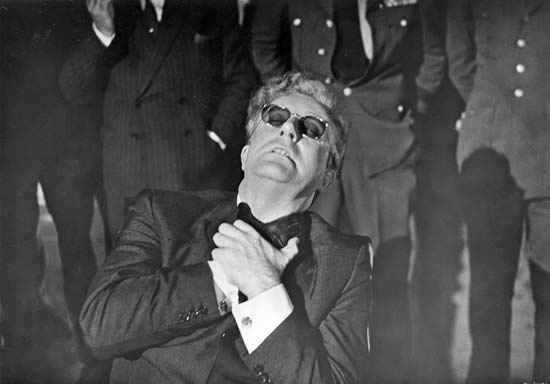black humour
also called black comedy
writing that juxtaposes morbid or ghastly elements with comical ones that underscore the senselessness or futility of life. Black humour often uses farce and low comedy to make clear that individuals are helpless victims of fate and character.
 Though in 1940 the French Surrealist André Breton (Breton, André) published Anthologie de l'humour noir (“Anthology of Black Humour,” frequently enlarged and reprinted), the term did not come into common use until the 1960s. Then it was applied to the works of the novelists Nathanael West, Vladimir Nabokov, and Joseph Heller (Heller, Joseph). The latter's Catch-22 (1961) is a notable example, in which Captain Yossarian battles the horrors of air warfare over the Mediterranean during World War II with hilarious irrationalities matching the stupidities of the military system. Other novelists who worked in the same vein included Kurt Vonnegut (Vonnegut, Kurt, Jr.), particularly in Slaughterhouse Five (1969), and Thomas Pynchon (Pynchon, Thomas), in V (1963) and Gravity's Rainbow (1973). A film exemplar is Stanley Kubrick's Dr. Strangelove (1964), a comedy of militaristic errors that ends in global nuclear destruction. The term black comedy has been applied to playwrights in the Theatre of the Absurd (Absurd, Theatre of the), especially Eugène Ionesco, as in Les Chaises (produced 1952; The Chairs).
Though in 1940 the French Surrealist André Breton (Breton, André) published Anthologie de l'humour noir (“Anthology of Black Humour,” frequently enlarged and reprinted), the term did not come into common use until the 1960s. Then it was applied to the works of the novelists Nathanael West, Vladimir Nabokov, and Joseph Heller (Heller, Joseph). The latter's Catch-22 (1961) is a notable example, in which Captain Yossarian battles the horrors of air warfare over the Mediterranean during World War II with hilarious irrationalities matching the stupidities of the military system. Other novelists who worked in the same vein included Kurt Vonnegut (Vonnegut, Kurt, Jr.), particularly in Slaughterhouse Five (1969), and Thomas Pynchon (Pynchon, Thomas), in V (1963) and Gravity's Rainbow (1973). A film exemplar is Stanley Kubrick's Dr. Strangelove (1964), a comedy of militaristic errors that ends in global nuclear destruction. The term black comedy has been applied to playwrights in the Theatre of the Absurd (Absurd, Theatre of the), especially Eugène Ionesco, as in Les Chaises (produced 1952; The Chairs).Antecedents to black humour include the comedies of Aristophanes (5th century BC), François Rabelais's Pantagruel (1532), parts of Jonathan Swift's Gulliver's Travels (1726), and Voltaire's Candide (1759).
- Mackenzie, Sir Morell
- Mackenzie, Sir Thomas
- Mackenzie, William Lyon
- mackerel
- mackerel shark
- Mackinac Bridge
- Mackinac Island
- Mackinac, Straits of
- Mackinaw City
- Mackinder, Sir Halford John
- MacKinlay Kantor
- MacKinnon, Catharine A.
- MacKinnon, Roderick
- mackintosh
- Mackintosh, Charles Rennie
- Macklin, Charles
- Mackmurdo, Arthur Heygate
- Mack Sennett
- Mack von Leiberich, Karl, Freiherr
- MacLaine, Shirley
- Mac Lane, Saunders
- Maclaren, Charles
- Maclaurin, Colin
- Maclean, Donald
- Maclean, George